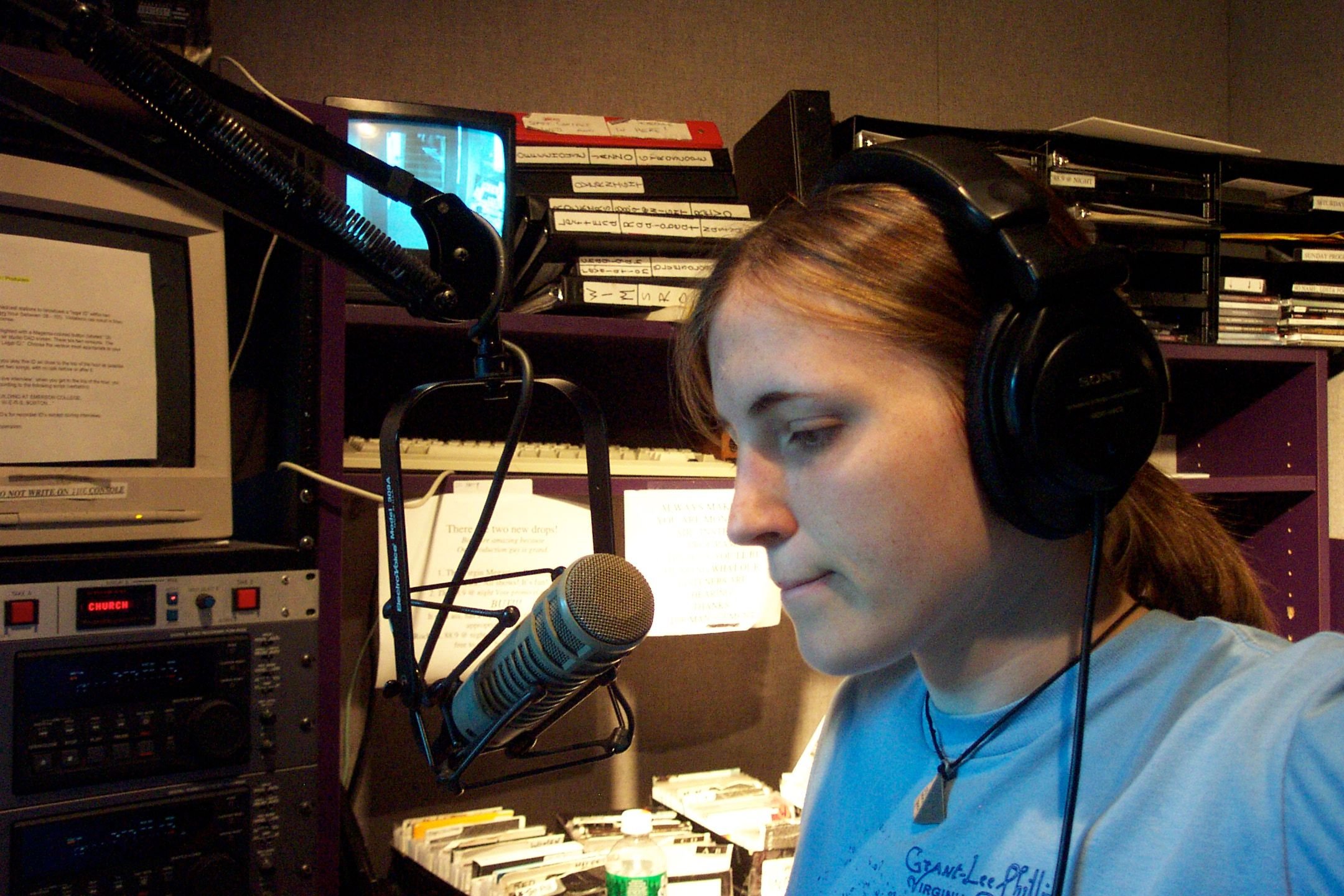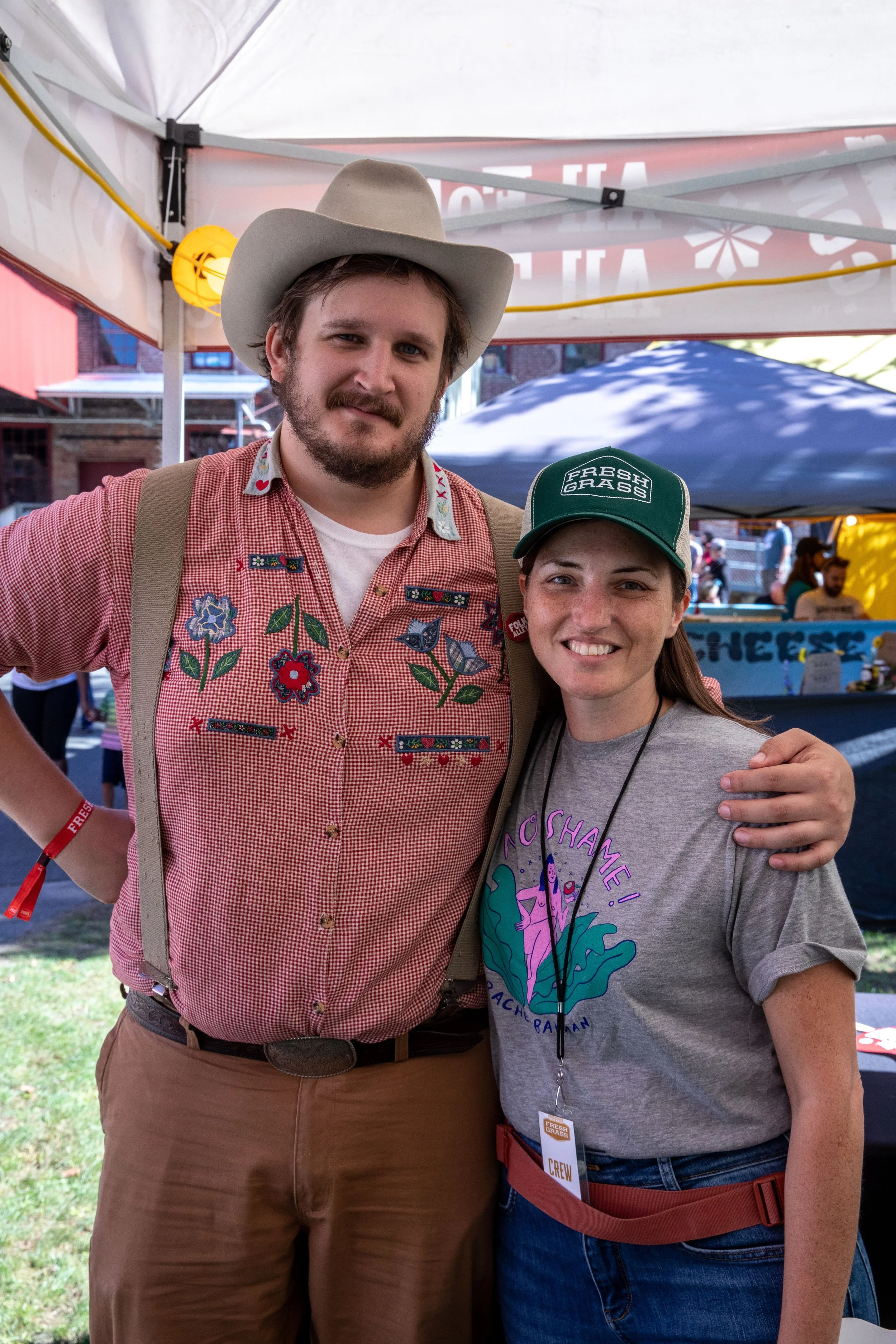Pump Up the (Folk) Jam with Cindy Howes - What the FOLK Is Up?
Ever heard of a Folk DJ before?
Didn’t think so. In that case, I’d like to introduce you to Cindy Howes: folk DJ extraordinaire.
Howes is an Emerson College alumna with a passion for all things folk music. She currently hosts her very own folk podcast, Basic Folk—simultaneously working as a music director at Folk Alley and an on-air host at North Carolina’s WUNC.
Howes in 2004, hosting WERS’ “The Coffee House”
Howes’ broadcasting career began at age 14, with a 10 watt radio station housed in her high school. She continued to work in radio programming during her time at Emerson, hosting “The Coffee House” on WERS—which she credits with sealing her love for music broadcasting. Her current resume is chock full of experience broadcasting for stations all over the East Coast and MidWest; though none of her experiences have been as close to her heart as hosting Basic Folk.
Basic Folk allows Howes to sit down with folk artists of today and have long, in-depth conversations— not only about their musical careers, but about their lives. Howes has interviewed artists from Anaïs Mitchell to Leyla McCalla, with each discussion providing a deep dive into the artists’ backgrounds. Casual conversations lead to endearing stories and insight into songwriting processes, letting audiences feel like they, too, are participating in an easygoing chat with the artist. Guests on the podcast “get a chance to tell their story and give us details about what it's like to be an observer of life in the way that they get to do it,” Howes states.
You must have a deep love and passion for folk music to become a folk DJ, and it’s safe to say that Howes can check off both requirements. Part of the allure of the genre, she asserts, comes from the fact that “It's so relatable to people and it's presented so simply that people have the opportunity to participate and sing along and really understand the lyrics.” Folk music has continually brought people together, “That tradition has carried on throughout the generations” Howes says, “evolving into its own type of poetry and its own type of communication.”
The tradition Howes mentions has certainly not been extinguished, and while folk music of today might not be trailblazing any large scale social movements, it continues to work its magic in different ways.
Howes witnessed said magic first hand during the beginning of the COVID-19 pandemic, working at Cambridge’s historic Club Passim as a Marketing Manager. Club Passim has been a hub for folk artists since its conception, with musicians such as Bob Dylan, Joan Baez and Tracy Chapman gigging at the venue before they made it big. While the venue was forced to close its doors during the pandemic, Club Passim provided a different kind of support for musicians in lieu of being an open performance space.
As Marketing Manager, Howes helped pioneer the Passim Emergency Artist Relief (PEAR) Fund, an endeavor to provide financial assistance to any musician who had performed or taught at Club Passim within the last decade. Thanks to support and donations from the folk community, over $161,000 in grant money made the lives of 250 artists a little bit easier.
While folk music always fosters strong communities, the genre has often cast aside the actual pioneers of the sound— people of color. Women and artists of color contributed much of the folk canon that is so beloved today, but the audience demographic has not and does not reflect it. To this day, many people of color steer clear of the genre, viewing it as whitewashed and unwelcoming.
Howes with folk singer Willi Carlisle at The Freshgrass Festival, September 2021
Photo Credit to Eric Ring
This is especially apparent to Howes as an attendee of many folk festivals. Howes notes the lack of diversity within the audiences, saying, “it would be great to go to a folk music festival and see all sorts of people there, all sorts of races and genders and sexuality, all different types of families—not just three different archetypes of people.” As the name implies, folk belongs to everyone, and it is time that audiences started to reflect that.
Folk music of days gone by has much to make up for, Howes accounts, “I really feel like folk music in the past did a really abominable job of lifting up women and marginalized people.” A change in the face of folk is necessary for today’s ever-changing world. Howes excitedly adds, “I really like what I have seen in terms of lifting up people who are non-White, not straight, not cisgender.” Progress is being made, with many women in folk and folk artists of color finally receiving the attention they deserve.
Howes has one wish for the future: “I would like to see different kinds of people enjoying folk music and feeling like they belong in the folk music space—that means that a space needs to be created for them to feel welcome and to feel like they're a part of it.”
Howes herself is tirelessly working to make that space available, uploading new podcasts weekly. You can tune in anywhere you get your podcasts, and can keep up with Howes on Instagram for even more folk content!



